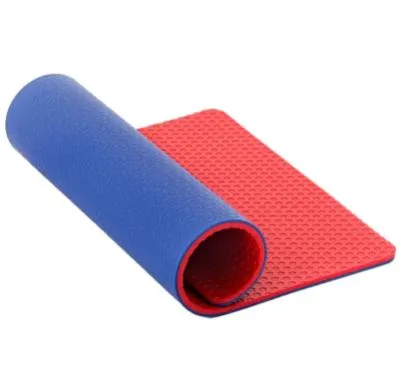- Afrikaans
- Arabic
- Belarusian
- Bengali
- Croatian
- Czech
- Danish
- Dutch
- English
- Estonian
- Finnish
- French
- Georgian
- German
- Greek
- hawaiian
- Hungarian
- Indonesian
- irish
- Italian
- Japanese
- kazakh
- Khmer
- Korean
- Kyrgyz
- Lao
- Latin
- Macedonian
- Malay
- Mongolian
- Myanmar
- Norwegian
- Persian
- Polish
- Portuguese
- Romanian
- Russian
- Serbian
- Spanish
- Swedish
- Tagalog
- Thai
- Turkish
- Turkmen
- Ukrainian
- Urdu
- Uzbek
- Vietnamese
- Zulu
Overview of Tennis Court Flooring Materials
Choosing the right tennis court flooring is critical for creating durable, high-performance spaces that cater to athletes and facilities alike. From types of tennis court flooring material to outdoor tennis court flooring material resilience, understanding the balance between synthetic tennis court price and quality ensures cost-effective solutions. This guide explores specifications, material benefits, and bulk purchasing considerations to help businesses make informed decisions.

Types of Tennis Court Flooring Material for Commercial Projects
When selecting tennis court flooring for large-scale installations, durability and performance are paramount. The primary types of tennis court flooring material include acrylic, synthetic grass, modular tiles, and porous concrete. Acrylic surfaces dominate professional courts due to their UV resistance and customizable textures, while synthetic grass offers a low-maintenance alternative with realistic ball bounce. Modular tiles, made from polypropylene or rubber, provide quick installation and shock absorption, ideal for multi-use facilities. Porous concrete, often paired with acrylic coatings, ensures superior drainage for outdoor tennis court flooring material in rainy climates.
For wholesalers, bulk orders of these materials require attention to tennis court flooring specifications like thickness, slip resistance, and ASTM compliance. Partnering with manufacturers that offer volume discounts on acrylic resins or pre-fabricated synthetic turf rolls can reduce synthetic tennis court price per square foot. Customizable color blends and logo integration further enhance value for large projects.
Optimizing Outdoor Tennis Court Flooring Material for Durability
Outdoor tennis court flooring material must withstand harsh weather, UV exposure, and heavy foot traffic. Acrylic-coated surfaces excel in longevity, with layered systems incorporating cushioning bases to prevent cracking. Synthetic grass, embedded with UV-stabilized fibers, retains color and structure even in extreme heat, while porous designs prevent water pooling.
For bulk buyers, prioritizing materials with warranties of years ensures long-term ROI. Suppliers specializing in outdoor tennis court flooring material often provide technical support for sub-base preparation, ensuring proper slope and drainage compliance. Wholesale partnerships may include discounted bulk pricing on ancillary products like boundary tapes or post systems, streamlining large installations.
Balancing Synthetic Tennis Court Price and Quality
The synthetic tennis court price varies based on material type, thickness, and installation complexity. Modular tiles, though pricier upfront, reduce labor costs with interlocking designs.
Wholesale buyers should evaluate lifecycle costs: low-maintenance materials like synthetic grass minimize long-term expenses. Negotiating bulk deals with certified suppliers ensures adherence to tennis court flooring specifications, such as DIN-certified shock absorption or ITF-approved ball rebound rates.
Meeting Tennis Court Flooring Specifications for Bulk Orders
Adhering to tennis court flooring specifications guarantees consistency across large projects. Suppliers catering to wholesalers often pre-test materials for compliance, offering batch certifications. Custom types of tennis court flooring material, such as cushioned acrylic layers or hybrid turf systems, can be tailored to meet regional climate demands. Bulk orders may also include discounted technical audits to ensure courts meet ITF or national sports body standards.
FAQs about Tennis Court Flooring
What factors influence synthetic tennis court price for bulk purchases?
Material type, thickness, and customization (e.g., colors, logos) are primary cost drivers. Bulk orders often reduce per-unit costs, especially when partnering with manufacturers directly.
How do I ensure outdoor tennis court flooring material lasts in harsh climates?
Choose UV-stabilized synthetic grass or acrylic systems with waterproof coatings. Proper sub-base drainage and regular sealing extend lifespan.
Can tennis court flooring specifications be customized for elite training facilities?
Yes. Advanced cushioning layers, ITF-approved surface speeds, and anti-glare finishes are customizable for high-performance venues.
What maintenance is required for surfaces of tennis court flooring in bulk installations?
Minimal upkeep: periodic brushing for synthetic grass and pressure washing for acrylic courts.
Are eco-friendly options available for tennis court flooring?
Recycled rubber tiles or permeable turf systems reduce environmental impact. Many suppliers now offer sustainable material lines for bulk projects.
-
Benefits of PP Interlocking Floors for Gym SpacesNewsJul.08,2025
-
Durability Testing for Interlocking Sports Floor TilesNewsJul.08,2025
-
Portable Basketball Floor SystemsNewsJul.08,2025
-
Eco-Friendly Badminton Court Flooring OptionsNewsJul.08,2025
-
Durability Testing for PVC Floor Mat RollsNewsJul.08,2025
-
Top Materials Used in Tennis Court FlooringNewsJul.03,2025
-
Popular Types of Pickleball Court Flooring ExplainedNewsJul.03,2025

